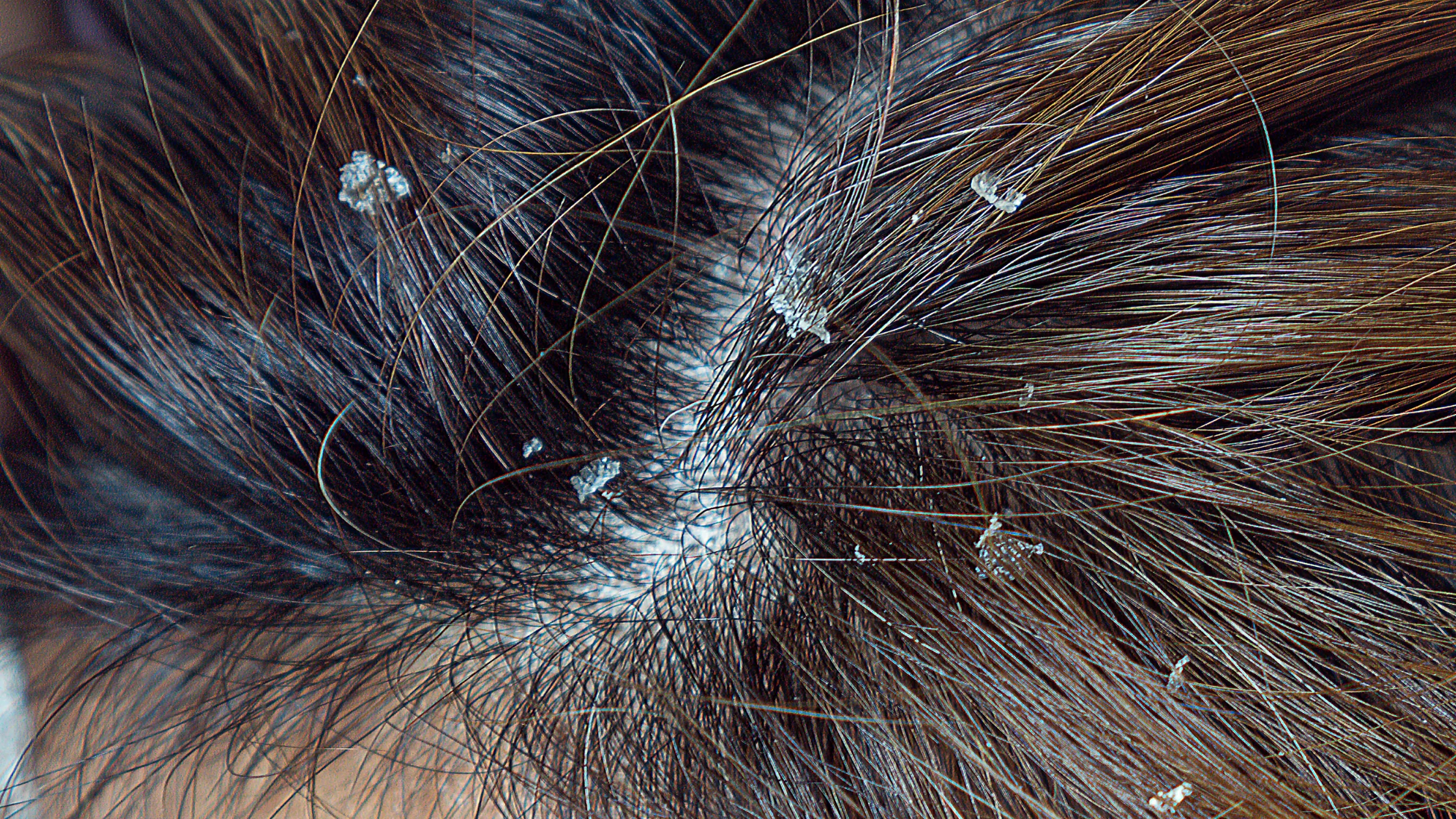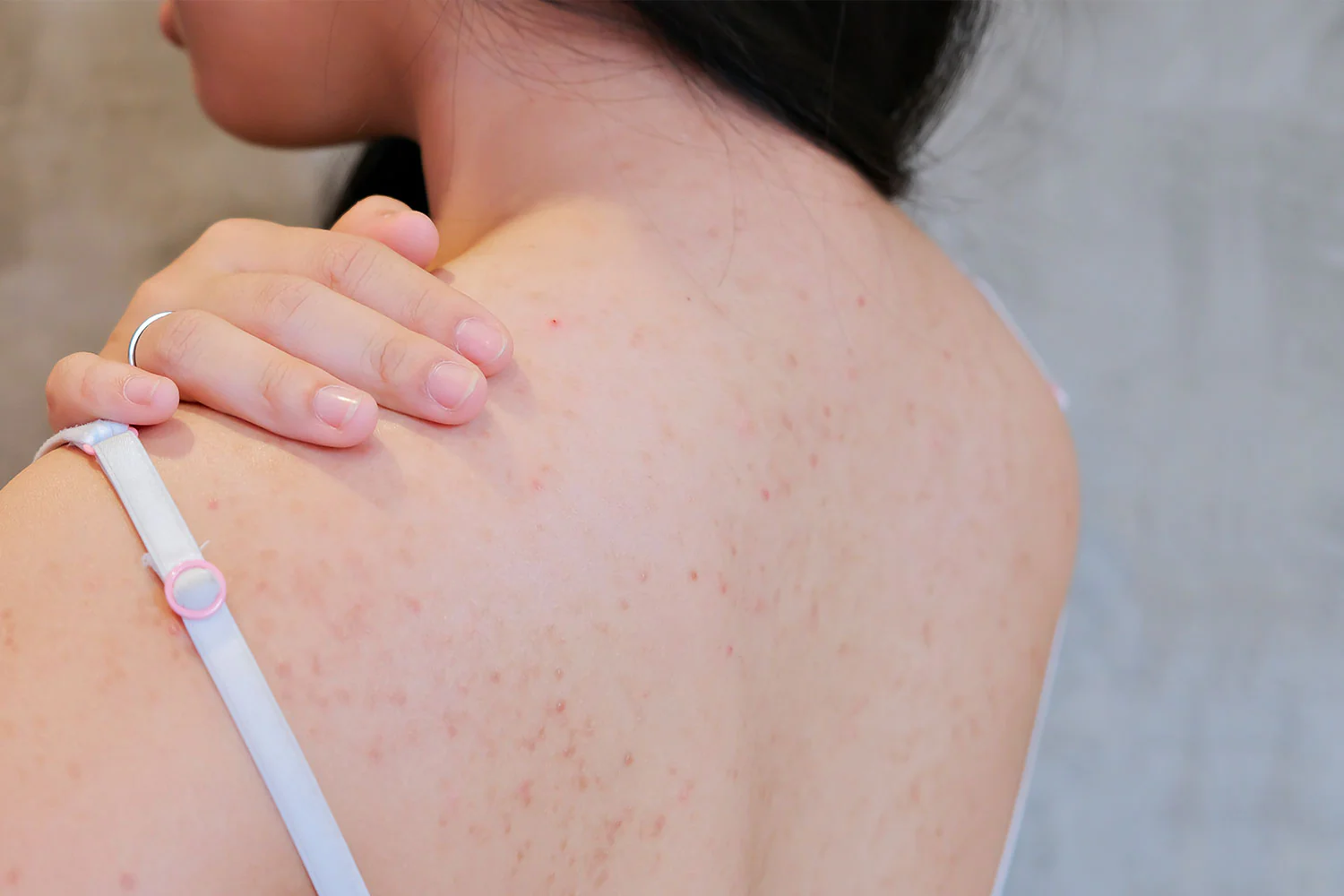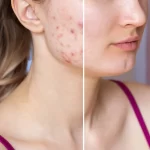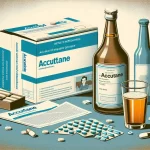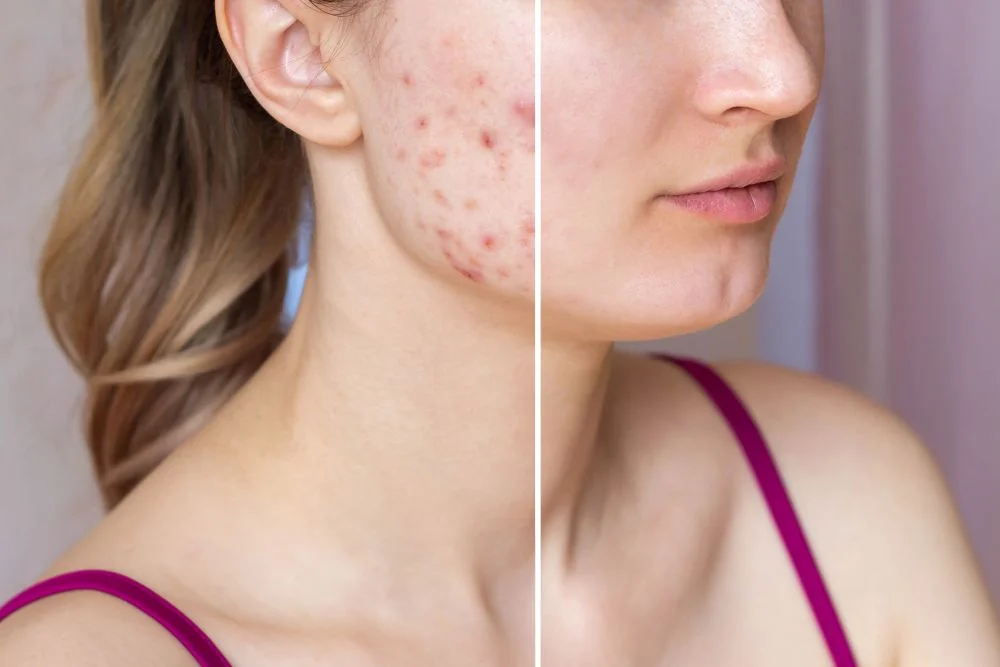An Accutane dry scalp occurs when isotretinoin reduces the skin’s natural oil production, leaving the scalp dehydrated, tight, and sometimes flaky. This reaction is a common side effect of acne treatment and may also cause mild hair loss or irritation.
Symptoms typically include dryness, itching, or small white flakes that resemble dandruff but are actually caused by reduced sebum production. Treatment focuses on gentle cleansing, hydration, and dermatologist-recommended moisturizers to restore comfort and well-being.
With proper care and medical guidance, most patients can control dryness without interrupting their Accutane regimen.
At DermOnDemand, Dr. Alicia Atkins and her team help patients manage these symptoms safely while continuing effective acne treatment. Understanding why dryness occurs and how to care for your scalp can make a significant difference in comfort and results.
Key Takeaways
- Accutane can cause scalp dryness by reducing natural oil (sebum) production, which weakens the scalp’s moisture barrier and leads to flaking and irritation.
- Common symptoms of an Accutane dry scalp include tightness, itching, white flakes, and occasional hair breakage or mild hair loss.
- Using mild, fragrance-free shampoos and dermatologist-approved moisturizers helps restore hydration without worsening side effects.
- Simple habits, such as staying hydrated, limiting the use of harsh hair products, and consuming nutrient-rich foods, can help prevent and reduce scalp dryness during treatment.
- If persistent itching, redness, or pain develops, consulting a dermatologist ensures safe management and prevents complications during acne treatment.
Why Accutane Causes a Dry Scalp
Accutane, or isotretinoin, works by reducing sebum production, which is the natural oil that keeps your skin and scalp hydrated. This reduction is one of the most common side effects of isotretinoin, and when oil levels drop, the scalp can lose its protective moisture barrier, leading to dryness and sensitivity.
How Isotretinoin Reduces Scalp Oil (Sebum)
Isotretinoin targets the sebaceous glands and minimizes their activity. This reduction helps control acne but also limits the scalp’s ability to retain moisture. With less sebum, the scalp becomes dry and may start to flake, especially during the early stages of treatment.
The Link Between Accutane and Dry Skin
The same mechanism that affects the scalp also impacts the skin on the face and body. While many patients experience dryness, others first notice changes in oil levels similar to those described in Accutane and oily skin.
Isotretinoin reduces oil production throughout the body, which can result in a shift from oily to dry skin as treatment progresses.
Signs and Symptoms of Accutane Scalp Dryness
Recognizing the early effects of Accutane-induced dry scalp can help prevent discomfort and complications.
Flaking, Tightness, and Itching
The scalp may feel tight or itchy due to a reduction in oil. Fine white flakes are common and often mistaken for dandruff, but they result from dryness rather than fungal buildup. These symptoms may worsen in dry climates or with frequent shampooing.
Hair Breakage and Scalp Sensitivity
Dryness can make hair brittle and increase its likelihood of breaking. Some patients notice mild hair loss or thinning, which is often temporary. The scalp might also feel sensitive or sore when brushing or styling hair.
Accutane Dry Scalp Treatment and Best Remedies
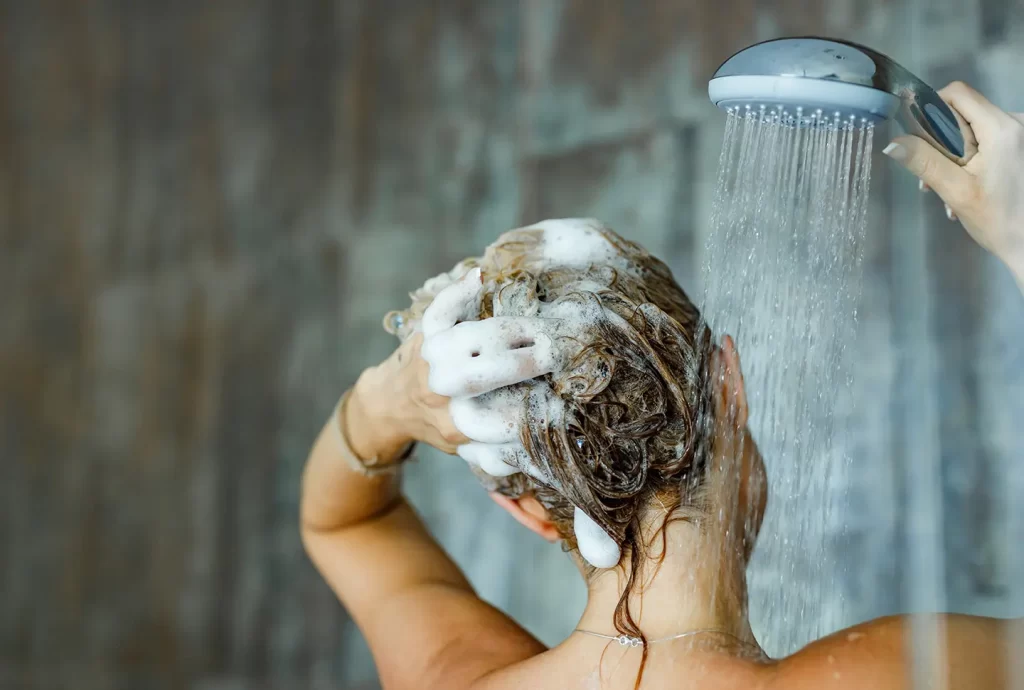
Managing a dry scalp during Accutane treatment involves gentle care and consistent hydration.
Medical Treatment and Professional Advice
Dermatologists may recommend specific medicated shampoos or topical solutions to soothe the scalp without interfering with Accutane. Dr. Atkins advises avoiding harsh products containing alcohol, sulfates, or strong fragrances, as these can worsen irritation.
Shampoos for Accutane Dry Scalp
Choose a mild, fragrance-free shampoo with moisturizing ingredients such as aloe vera, ceramides, or glycerin. Wash your hair less frequently; two to three times per week is often enough. This helps preserve natural oils and reduces flaking.
Moisturizers, Natural Oils, and At-Home Relief
Natural oils, such as jojoba or coconut oil, can help restore moisture when used sparingly on the scalp. Apply a small amount before bedtime and rinse in the morning. For deeper hydration, look for scalp serums formulated for sensitive skin.
How to Stop Flaking and Keep Scalp Moisturized
To reduce flaking, massage the scalp gently while washing to increase blood flow and loosen dry skin. Always follow with a lightweight conditioner, applying it mainly to the hair ends. Staying hydrated and maintaining balanced nutrition also supports scalp recovery from within.
Preventing and Restoring Scalp Health During and After Accutane
Proper care during and after Accutane can prevent persistent dryness and support healthy hair growth.
Daily Hydration and Nutrition Tips
Drink enough water and eat foods rich in omega-3 fatty acids, zinc, vitamin A, and vitamin E. These nutrients promote balanced oil production and strengthen hair follicles. Limiting caffeine and alcohol can also help maintain moisture levels.
When Sebum Levels Return to Normal
After completing Accutane, oil production usually returns to normal within a few weeks to months. As the scalp recovers, dryness, tightness, and sensitivity gradually decrease. Continuing gentle scalp care during this time helps stabilize results.
Long-Term Scalp-Care Routine
Once isotretinoin treatment ends, keep using mild, hydrating products. Avoid aggressive styling tools or chemical treatments for a few months. Protecting the scalp from sun exposure with a hat or SPF spray can further reduce irritation.
When to See a Dermatologist
Knowing when to seek professional help ensures safe and effective management of side effects.
Persistent Itching, Flaking, or Pain
If scalp discomfort persists after adjusting your routine, consult a dermatologist. Persistent symptoms may indicate an underlying condition, such as eczema or seborrheic dermatitis, that requires specific treatment.
Signs of Infection or Severe Irritation
Redness, scabbing, or increased tenderness can signal infection or an adverse reaction. Professional care is essential to avoid worsening irritation and to maintain the benefits of your acne treatment. DermOnDemand offers quick, confidential consultations for patients who need timely guidance.
Caring for a dry scalp while on Accutane is possible with the proper knowledge and approach. By following dermatologist-recommended routines and recognizing when to seek professional help, patients can maintain comfort throughout their acne treatment and protect their long-term scalp health.
Start Your Online Dermatology Plan Today
If you’re struggling with a dry scalp from Accutane or other skin side effects, connect with Dr. Alicia Atkins and her team at DermOnDemand. Get expert, personalized care and a prescription plan reviewed by a board-certified dermatologist, all online, within 24 hours.


